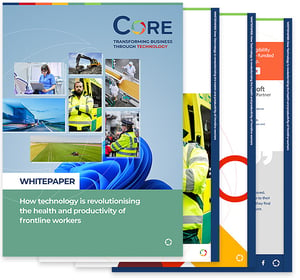In today’s digital-first world, cyber security is no longer just a technical issue—it’s a boardroom priority. As we move through 2025, the landscape is evolving rapidly, shaped by everything from generative AI and hybrid working to increasingly sophisticated cyber threats and regulatory pressures.
For UK businesses in particular, the challenges are becoming more complex. With rising expectations from customers, tighter data protection requirements, and the growing need for operational resilience, the way we think about cyber security must evolve too.
From Reactive to Proactive: The Changing Security Mindset
Traditionally, cyber security strategies have been largely reactive—focused on defending the perimeter and responding to threats as they appear. But today’s threat landscape doesn’t wait politely at the gates.
Modern attacks are multi-layered, fast-moving, and often subtle. Phishing campaigns are now AI-generated and hyper-personalised. Ransomware gangs are operating more like businesses, targeting supply chains and critical infrastructure. Insider threats—both malicious and accidental—remain a constant concern, particularly in a hybrid working world where users access systems from multiple devices, locations, and networks.
As a result, we’re seeing a shift from defence to resilience. The emphasis is now on early detection, rapid response, and ongoing recovery. Organisations are beginning to accept that breaches may be inevitable—but disruption doesn’t have to be.
The Implications for the Modern Workplace
For IT leaders, the evolution of cyber security isn’t happening in isolation. It’s colliding with broader transformation efforts—digital modernisation, cloud adoption, AI integration, and the need to support a dispersed workforce.
This convergence presents a series of practical challenges. How do you protect endpoints that are no longer confined to the office? How do you govern access to data stored across multiple cloud platforms? And how do you empower employees to use AI tools like Copilot productively, without inadvertently exposing your organisation to new risks?
The answers lie in a holistic, identity-first approach to cyber security—one that brings together user behaviour, access controls, endpoint protection, threat intelligence, and
education into a cohesive strategy. Crucially, this means making security part of the employee experience, not a barrier to productivity.
UK Businesses: Facing a Unique Set of Pressures
While many of these trends are global, UK businesses are navigating them against a unique backdrop. The increasing influence of UK-specific regulations such as the NIS2 Directive, the Data Protection and Digital Information Bill, and sector-specific guidance (especially in finance, healthcare, and critical national infrastructure) is forcing organisations to elevate their cyber resilience strategies.
At the same time, the UK remains a prime target for international cybercrime. According to the National Cyber Security Centre, attacks on UK businesses are becoming more frequent and more targeted, with small and medium-sized enterprises often bearing the brunt. As such, cyber security is no longer the preserve of large enterprises or government bodies—it’s essential for every organisation, regardless of size or sector.
Security, Strategy, and the Skills Gap
One of the biggest barriers to keeping pace with cyber security in 2025 is the skills shortage. There simply aren’t enough cyber security professionals to go around—and those that are available, are in high demand.
This makes managed security services and strategic partnerships more important than ever. UK businesses are increasingly turning to trusted IT providers to plug capability gaps, monitor their environments 24/7, and help them develop strategies that are both technically sound and commercially viable.
There’s also a renewed focus on internal upskilling. Security awareness training is becoming more engaging and relevant, moving beyond generic e-learning modules to real-world simulations and role-based learning. Because when it comes to cyber security, people are both your biggest vulnerability and your greatest defence.
Looking Ahead
One thing is clear: cyber security will remain a defining challenge for the modern workplace this year and beyond. But it’s also an opportunity. By evolving security from a reactive function to a proactive, strategic enabler, UK businesses can build trust, protect innovation, and position themselves to thrive in a world that’s more connected—and more exposed—than ever before.
At Core, we help organisations across the UK navigate this complexity. From secure cloud solutions and Microsoft Defender integration, to expert guidance on compliance and modern workplace resilience, we’re here to support your cyber security journey every step of the way.
Because in today’s world, strong security isn’t just good IT—it’s good business.






